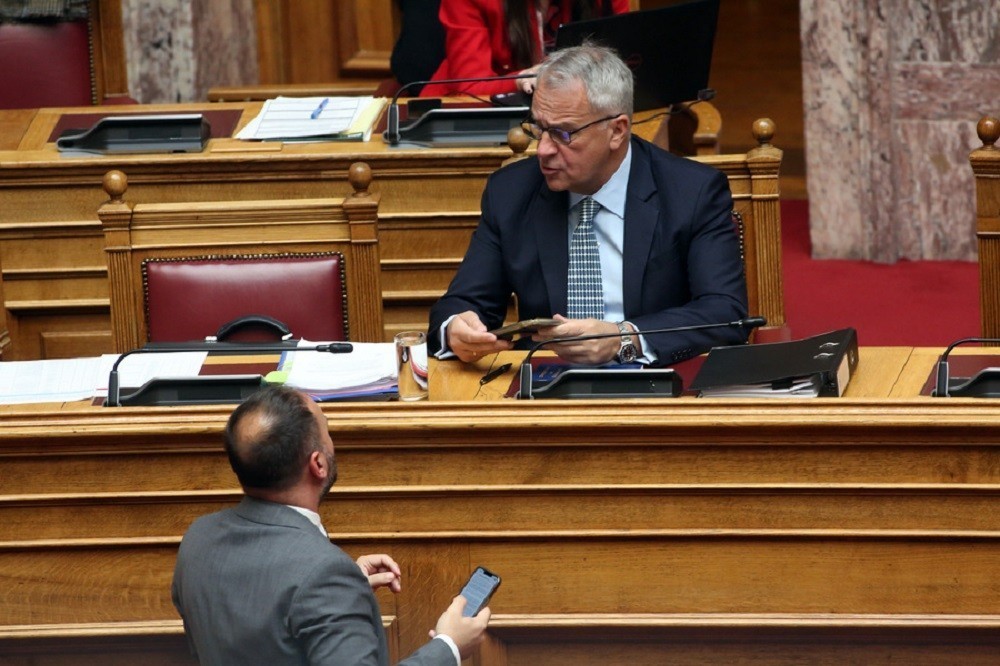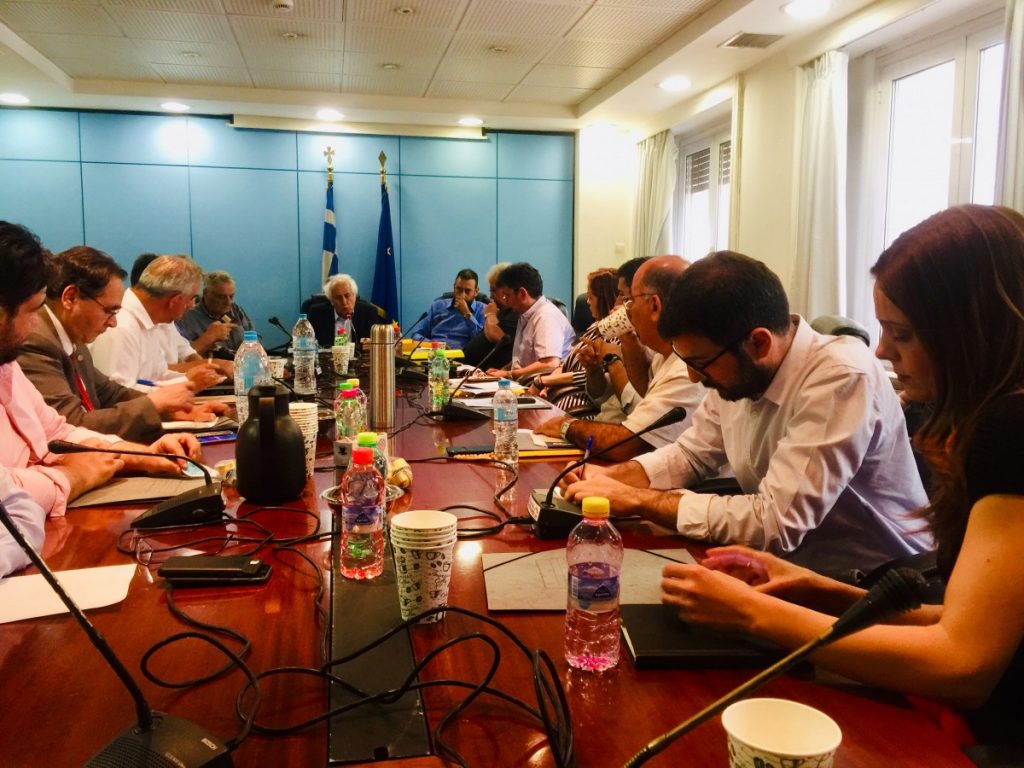
Greece’s political leaders conclude meeting on refugee/migration crisis
Greece’s political party leaders concluded a meeting on the refugee and migration crisis late on Friday. A joint statement issued after the leaders’ council, chaired by Hellenic Republic President Prokopis Pavlopoulos, was backed by all the parties except the Communist Party of Greece (KKE) and Union of Centrists.
Government sources said there had been full agreement with the government’s positions and plan for the refugee and migration crisis at the meeting. They attributed the delay in drafting the joint statement to the PASOK leader Fofi Gennimata’s insistence that it include a reference reflecting her view that this could only be achieved by a national consensus government of all pro-European forces. According to the same sources, this was opposed by the other political leaders, who refused to sign if this was included.
Main opposition New Democracy leader Kyriakos Mitsotakis said the meeting had resulted in a “minimum acceptable framework” on what Greece will strive to achieve at the EU-Turkey summit on Monday but also expressed “reservations” about the government’s ability to handle the crisis.
He said ND had strongly criticised the government’s strategy on this issue up to this point while adding that, “albeit with some delay, it is finally adjusting its strategy to realism”.
In statements as he left the meeting, Potami party leader Stavros Theodorakis said the political leaders had agreed on the need for solidarity with the refugees but also that irregular migrants must return home and that the security of the Greek islands must be protected. He said that the prime minister did not receive the opposition’s backing for use of Greece’s veto but also that he did not want to use it.
KKE’s leader Dimitris Koutsoumbas had walked out of the meeting early, while Union of Centrists’ leader Vassilis Leventis finally refused to back the joint statement, calling the meeting a “fiasco”.
According to a statement by the Presidency, the political party leaders signed the following:
“The events which have occurred since the last political leaders’ meeting on November 28, 2015, not only confirmed but also strengthened the realization that the refugee issue is common -in essence existential – for all European Union member-states.
A) In this framework, Greece:
1. With a spirit of humanism and solidarity towards refugees but also by fortifying the security of the Greek people, Greece will fully respect its obligations in the manner defined by the decisions of the relevant EU authorities.
2. Greece guards the European Union’s external borders. In this spirit, it not only cooperates with Frontex, but seeks the active enhancement and its final rapid evolution into a European Coast Guard, which will respect national sovereignty in terms of securing its borders. Following this development, Greece will be willing to host the headquarters of the European coastguard. It will also fully cooperate with the agreed NATO missions in the condition that Turkey respects its own obligations.
3. The country improves its temporary refugee accommodation centers, along with the centers for migrants who will be deported.
B) The European Union should:
1. Impose to all its member-states without exception, the full respect of their obligations in terms of fair and proportionate allocation of refugees, making it clear that unilateral action is not permitted and that those who choose them will face relevant consequences. In this context, it must also be made clear to all member-states that frontline countries, and in particular Greece, cannot assume the entire burden of hosting refugees entering the European Union, but only as many as their population can support. In the same context the European Union must speed up the implementation of relocation of refugees from Greece and Turkey.
2. To promote, as soon as possible, readmission schemes for irregular migrants, by activating existing Readmission Agreements and signing new ones.
3. To promote cooperation with Turkey in order that the country immediately halts refugee flows towards the European Union and also undertake immediately the responsibility of creating a stable and reliable mechanism of relocation of refugees from Turkey into the European Union. It must be noted that the European Union must take seriously into account that Turkey has failed to fulfill specific obligations, endorsed by the summit of November 29, 2015.
4. To provide timely assistance to our country, mainly in the form of continued financial and logistical support for humanitarian treatment of refugees, taking into account that Greece suffers, more than any other member state, the effects of the refugee crisis.
5. To play a key role in ending the war in Syria – which is the main cause of the creation and perpetuation of the refugee crisis – so as to facilitate the earliest possible return of refugees to their homes.
C) The current situation demonstrates the need to revise properly the Dublin II agreement on grounds of urgency, even if this revision is initially transitional, until it is fully prepared and completed.
ANA-MPA, Athens

